Six-Part Workshop on Essential Peacebuilding Skills
Learn to equip yourself with the expertise and experience necessary to effectively engage in peacebuilding and conflict resolution. The Peace Studies Program will offer six day-long workshops throughout the Spring 2012 semester. Each workshop will focus on one essential skill related to non-violent peacebuilding. Field practitioners from various peace organizations will design the workshops to be as practical and participatory as possible. Participants who complete all six workshops will be awarded certificates at the Peace Fair in April. Those interested should inform the Director of Peace Studies as soon as possible.
Part 1: Negotiation and Mediation
4th February, 10-4 PM
(JF 222)
Negotiation and mediation are key skills for those who are interested in working for peaceful change. This workshop will teach participants the skills necessary to transform relationships so that basic needs can be met and conflicting parties can cooperate to discover common interests.
Part 2: Civil Disobedience
11th February, 10-3 PM
(JF 222)
Nonviolent resistance can be as effective as violence in creating social change. This workshop will focus on social defense, non-violent resistance in social change, and third party non-violent intervention by using strategies such as protest and persuasion, noncooperation, and intervention. Clark students who have performed civil disobedience will share their experiences.
Part 3: Personal Transformation
24th March, 10-2 PM
(JF 222)
Peacebuilding begins with the individual; peace advocates must embrace the challenge of personal transformation before they can transform society. This workshop will facilitate participants in their efforts to decrease inner turmoil while increasing compassion and insight.
Part 4: Working with the Law and Law Enforcement
(TBA)
In planning any nonviolent resistance campaign, we must anticipate the rule of law and the responses from armed agents of the state. This workshop will teach participants how to relate to, dialogue with, challenge, and utilize the existing structures of the legal system and police in their efforts to promote peace.
Part 5: Grant Writing and Proposal Development
(TBA)
Most peace work is financed by grants. This workshop will teach participants how to write proposals that will secure funding for their projects. It will focus on how to navigate the world of grant procurement and the key sections of successful proposals that demonstrate the project’s excellence to prove they merit strong consideration.
Part 6: Dealing with Trauma in Mediation and Conflict Resolution
(TBA)
Peace building involves helping people to overcome and manage trauma. This workshop will examine the important relationship between trauma recovery and peacebuilding while helping participants to develop effective communication skills by utilizing the existing mode and technologies of communications.
Worcester Community Peace Fair
(TBA)
This spring, the Peace Studies Program will host the Ninth Worcester Community Peace Fair. From 1985-1992, the Peace Fair served as a place where community members and students could come together to learn about, discuss, and celebrate peace. In April, we will be pleased to welcome this honored tradition back to the Main South community. The fair will feature a walking exhibit of several dozen displays on topics surrounding peace. Student clubs, academic departments, and independent groups of students from many local colleges along with various community and faith-based groups will be invited to create and staff these displays. A guest speaker (TBA) will address a current topic related to peace. There will be additional activities such as discussion groups, peace-themed games, entertainment, and food. Please join us for this inspiring event!
Participating in Peace Studies Events for Course Credit
Peace Studies concentrators and self-designed majors may receive course credit for their participation in Peace Studies Program Events with the advance approval of Jude Fernando, Director of Peace Studies. To receive a half-course credit, students must register for PSTD 299 with the Program Director, complete all six peacebuilding workshops, and participate in the Peace Fair. To receive a full course credit, students must fulfill the requirements for a half-course credit and complete a research paper and Academic Spree Day presentation on a topic relating to peace.
For more information on the events listed above, please contact one of the Peace Studies core faculty: Jude Fernando, Director of Peace Studies, at JFernando@clarku.edu or ext. 8859, Johanna Vollhardt at JVollhardt@clarku.edu or ext. 7278, or Kristen Williams at KWilliams@clarku.edu or ext. 7446. Questions also may be directed to one of the Peace Studies Librarians: Devon at DGraysonWallace@clarku.edu, Jesse at JManuta@clarku.edu, or Katie at KMcGonagle@clarku.edu.

